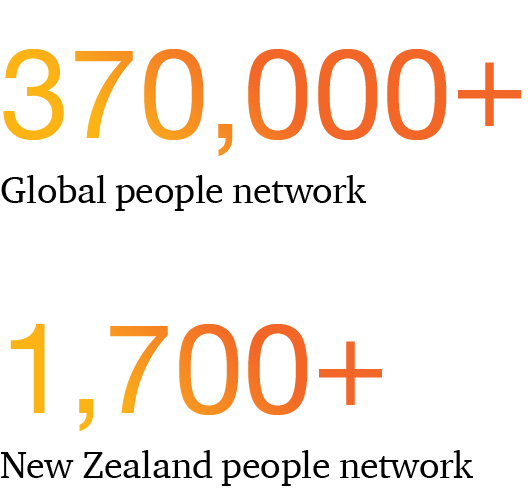Employment The employment landscape in Aotearoa New Zealand
The Employment Relations Act 2000 (ERA) is the primary piece of legislation that governs relationships between employees and employers in New Zealand, and establishes an employment dispute resolution framework. New Zealand is a common law country, with a separate labour jurisdiction made up of the Employment Relations Authority (a quasi-judicial tribunal) and the Employment Court (which determines legal disputes and interprets employment legislation).
New Zealand’s employment law framework is generally considered to be “employee friendly” and places relatively onerous obligations on employers, compared to other similar jurisdictions. However, the current Government, a centre-right coalition, is considered ‘pro-business’ and is proposing a number of legislative changes this term which, if passed, have the potential to wind this back somewhat and even the playing field. The Employment Relations Amendment Bill, which proposes a number of such changes to the ERA, has been introduced to Parliament. We expect this Bill will pass in late 2025.
The unemployment rate currently remains below the historical average (measuring 5.1 percent in the first quarter of 2025)1 with the labour market stagnant but expected to grow. In this context, and against a backdrop of legislative reform, employers in New Zealand should ensure they have a good understanding of their legal obligations and are set up for success with compliant employment documentation and processes.
Employment Minimum entitlements
New Zealand employment law provides for a set of minimum entitlements that must be complied with.
Minimum wage
All employees aged 16 years or over must be paid the minimum wage. From 1 April 2025, the minimum wage in New Zealand is NZ$23.50 per hour before tax.
Paid time off
Each year, employees are entitled to 12 public holidays, four weeks of paid annual leave (after 12 months of continuous employment) and paid sick leave (10 days), family violence leave and bereavement leave. The Holidays Act 2003 (Holidays Act) governs these minimum entitlements and is a complex piece of legislation which has given rise to compliance issues for many businesses in recent years.
Parental leave
Eligible employees are entitled to up to 52 weeks unpaid parental leave, with up to 26 weeks paid by the Government.
Employment Good faith
The statutory duty of good faith is the equitable cornerstone of employment relations in New Zealand. It requires parties in an employment relationship to be responsive and communicative, and to not mislead or deceive the other. As a general rule, employers must consult with employees before taking any action that might impact the workforce and particularly before making any changes that may affect ongoing employment.
Employment Employment agreements
All employees must have written employment agreements containing certain mandatory terms. Employment agreements may take the form of an individual agreement between an employer and employee, or a collective agreement if employees are members of a trade union.
Most employees in New Zealand work on a permanent basis. A person can also be employed on a fixed-term or casual basis. There are different legal requirements and entitlements for different types of employment relationships.
Employment Dismissal
Employers cannot ‘fire at will’ in New Zealand. Termination must meet the statutory test of justification, meaning it must be justified by one of a limited set of reasons (for example, misconduct, performance issues, redundancy or incapacity) and there are procedural requirements that must be followed.
A new employee’s employment may be subject to a trial period of 90 days or less to test their suitability for the role. An employer may dismiss an employee on notice during the trial period, if certain strict processes are followed, in which case the employee is not able to bring an unjustified dismissal claim.
The Employment Relations Amendment Bill proposes to introduce a threshold limiting the ability for high earners to raise personal grievance claims related to their dismissal. It also includes limiting potential remedies for all employees whose conduct contributes to the circumstances of their claim.
Employment Redundancy
New Zealand employees are not entitled to any statutory compensation or severance payments. However, there may be a right to compensation as agreed between the employee and the employer as a matter of contract. All employees are entitled to their contractual notice period, as well as any outstanding salary and annual leave entitlements if they are made redundant.
Employees in specific industries (e.g. cleaning services, food catering and aged care), where jobs are particularly vulnerable to restructuring, have additional statutory protections under the ERA.
Employment Dispute resolution
Currently, all employees who believe they have been treated unfairly have access to New Zealand’s personal grievance regime. A personal grievance is a particular type of complaint which must be made to the employer within 90 days of any alleged instance of discrimination, harassment, bullying, or any disadvantage or dismissal (or, in the case of alleged sexual harassment, within 12 months of the event occurring).
If a dispute cannot be resolved directly between an employee and employer, the Government provides a free mediation service. A dispute that cannot be resolved at mediation may be escalated to the Employment Relations Authority, or higher, to the Employment Court. The vast majority of employment relations disputes are resolved by way of a confidential settlement agreement before, or at, the mediation stage.
Employment Collective representation
Employees in New Zealand can choose whether or not to join a trade union. Employers, unions and employees are encouraged to work together and have a statutory duty to do so in good faith.
Overall, when considered in an historical context, national union membership remains relatively low (approximately 14.5 percent of all employees as of 1 March 2024).2 The public and community services industries (such as health care and social assistance, public administration and safety, and education and training) are currently the most unionised sectors.
The Employment Relations Amendment Bill seeks to reform sections in the ERA which govern how unionised workplaces onboard new employees, and other obligations regarding the provision of union information.
Employment Independent contractors
Businesses can also engage independent contractors to provide services. Independent contractors are not afforded the same minimum statutory entitlements as employees and are responsible for meeting their own tax obligations.
Contractors can challenge their status in the courts if they believe they are not genuine contractors, and should be classified as employees (despite any contractual or other documentation to the contrary). If they are successful, this can give rise to liabilities for minimum entitlements under employment legislation and tax issues for the employer.
The Employment Relations Amendment Bill intends to amend the ERA by introducing a proposed “gateway test” to provide greater clarity when assessing worker status.
Employment Health and safety
The Health and Safety at Work Act 2015 and related regulations set out New Zealand’s workplace safety regime.
Businesses are responsible for the health and safety of their workers (including employees and any independent contractors) and anyone affected by their work, and must provide and maintain a safe working environment, taking into consideration both physical and mental wellbeing.
In the case of a breach, a business and its officers (including directors) can be prosecuted in the criminal courts by the regulator, WorkSafe New Zealand, and significant penalties can be imposed (including fines and, in the case of officers of offending employers, imprisonment).
The Government has announced its intention to make reforms to New Zealand’s health and safety laws and regulations. The first set of reforms will seek to reduce the compliance burden for businesses and clarify health and safety duties. These changes are expected to be introduced in 2025.3
Employment Insurance
Accident Compensation Corporation (ACC) is a form of social insurance which provides personal injury cover for everyone in New Zealand. It is a no-fault system that provides compensation to people who are injured in accidents (including those suffered at work). Legal action for personal injury is generally prohibited in New Zealand.
Employers in New Zealand are not required to offer health insurance to employees, but they must contribute to ACC through regular levies. Employers that do not pay ACC levies can be liable for significant penalties.
Employment KiwiSaver
KiwiSaver is a voluntary, work-based savings scheme designed to help New Zealanders save for their retirement. While KiwiSaver is not compulsory, employees must “opt-out”, meaning employers must enrol any eligible new hires and provide them with opt-out information.
Employees that participate in KiwiSaver must contribute a defined percentage of their before tax earnings (at least 3%). These contributions are deducted by their employer each time they are paid. Separately, employers must also make a compulsory contribution of at least 3% of each participating employee’s salary or wages before tax. Private superannuation schemes are fairly uncommon in New Zealand.
The Government has announced that employee and employer KiwiSaver contributions will increase from 3% to 3.5% on 1 April 2026. On 1 April 2028, this will rise to 4%.











